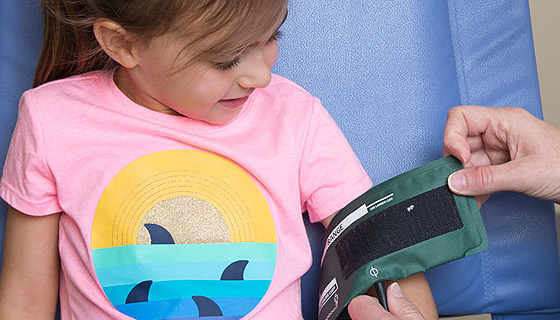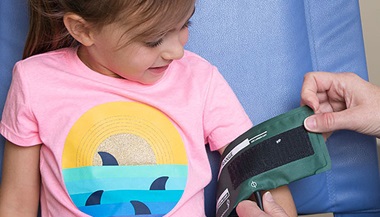Children Placing Objects in their Body
Featured Expert
Kids love putting objects in places they do not belong, such as nose, mouth and ears. What should a parent do if this happens? Joe Perno, vice president of medical affairs, chief medical officer and an attending physician in the Emergency Center at Johns Hopkins All Children's Hospital, talks about the things doctors see in the clinics and the emergency department.
Any time a child is having any difficulty breathing, speaking or swallowing, they need to be seen in an emergency department immediately. You may need to call 911 if the child is struggling to breathe. Otherwise, the child can be seen in the emergency department or pediatrician’s office as soon as possible.
OK, let’s talk specifics. … Kids love sticking t hings up their nose. What needs to be done?
Although this rarely causes significant problems immediately, the child should be seen in the emergency department for removal as soon as possible. It is often very difficult, if not impossible, for parents to remove foreign bodies from the nose. The emergency department has multiple creative ways to get objects out of the nose.
Objects left in the nose can damage the nasal septum or eventually be aspirated into the lungs. Objects accidentally left in the nose (ex. parents did not know about it) for a long period will often produce a one-sided nasal drainage that is often foul smelling; unlike a cold or allergies where the drainage is typically both sides. If parents see this, they need to go to the emergency department or an ear nose and throat (ENT) specialist for removal.
What should a parent do if the child swallows an object?
The urgency of this situation is dependent upon a few things: what was swallowed, where it ended up and the symptoms the child is having.
Many times parents know what was swallowed and that is helpful. All metallic objects can be detected on X-ray so a visit to the emergency department can be worthwhile to determine the location of the object. When the child swallows something that is non-metal, we focus more on symptoms. If the child has no symptoms, you can offer them some liquids and if the child can drink without any difficulty, try solid foods. If the child tolerates both without any symptoms, parents can watch the child at home. If the child is unable to drink or eat, they need to be seen regardless of what may have been swallowed. Similarly, if the child has any symptoms such as drooling, hoarse voice, coughing or difficulty breathing, they should be seen immediately.
Let’s talk about specific situations like button batteries.
Button batteries can be found in many small toys, watches and some musical greeting cards. These are very easily swallowed and can cause significant problems especially if lodged in the esophagus. If parents believe the child swallowed a button battery, regardless of symptoms, they should be seen in the emergency department immediately as damage can begin occurring in just a few hours. The emergency department will X-ray the child to determine if it is a button battery (or possibly a coin) and the location of the object. This will determine next steps in the management.
What about small magnets?
Small powerful magnets are very dangerous to any young child who might swallow them. Not only are they a choking hazard, but they can be extremely dangerous when multiple are swallowed. When multiple small magnets reach the intestines, they can “find” each other and break through the walls of the intestine leading to a serious infection and possibly death.
Lastly, what if a child sticks something in his or her ear?
Although generally not an emergency, objects in the ear canal need to come out. Parents should seek medical care from their pediatrician, emergency department or ENT as soon as convenient.
On Call for All Kids is a series featuring Johns Hopkins All Children’s Hospital experts.






